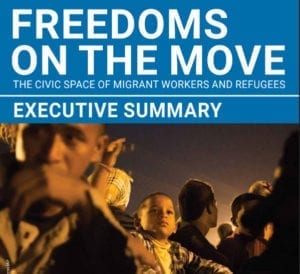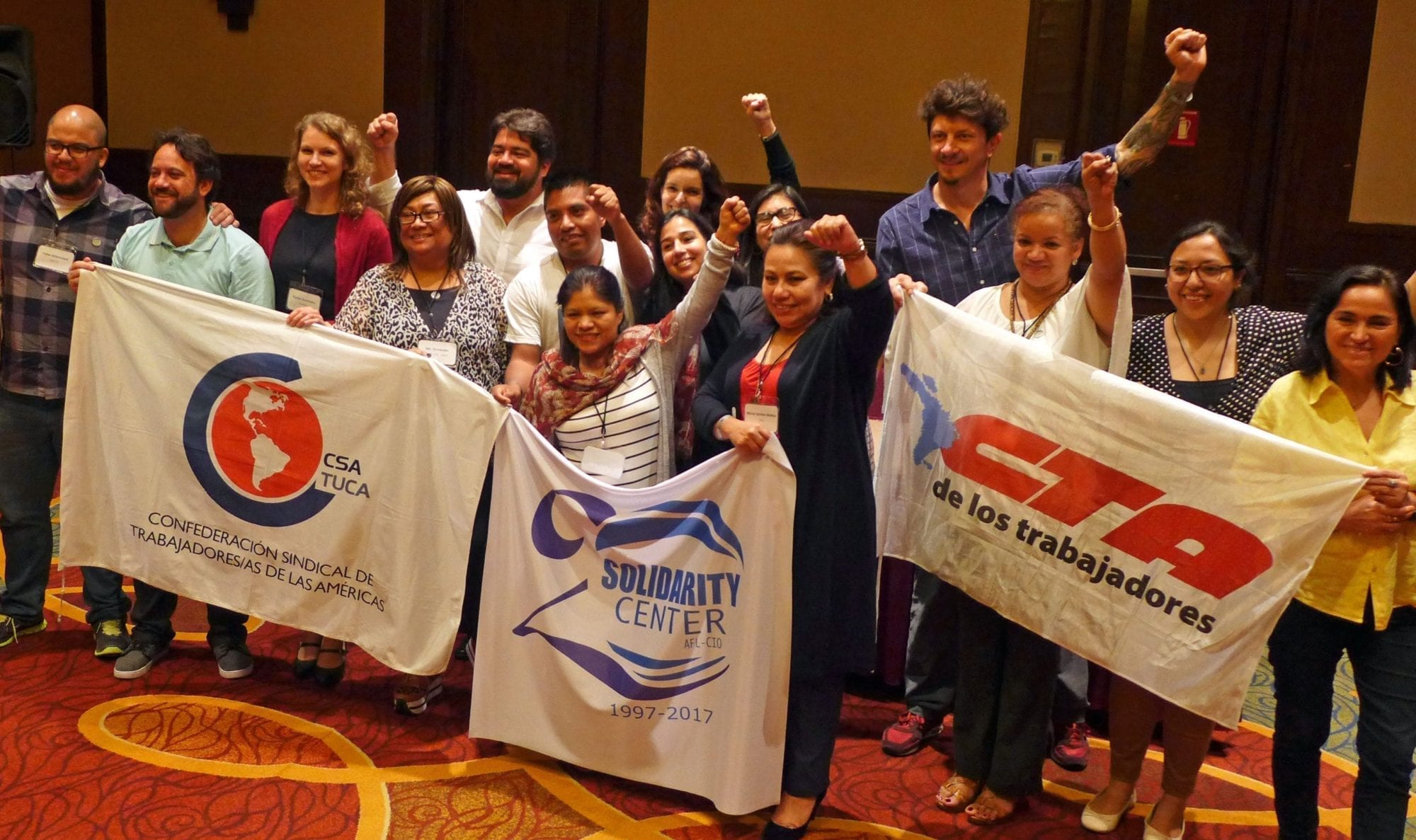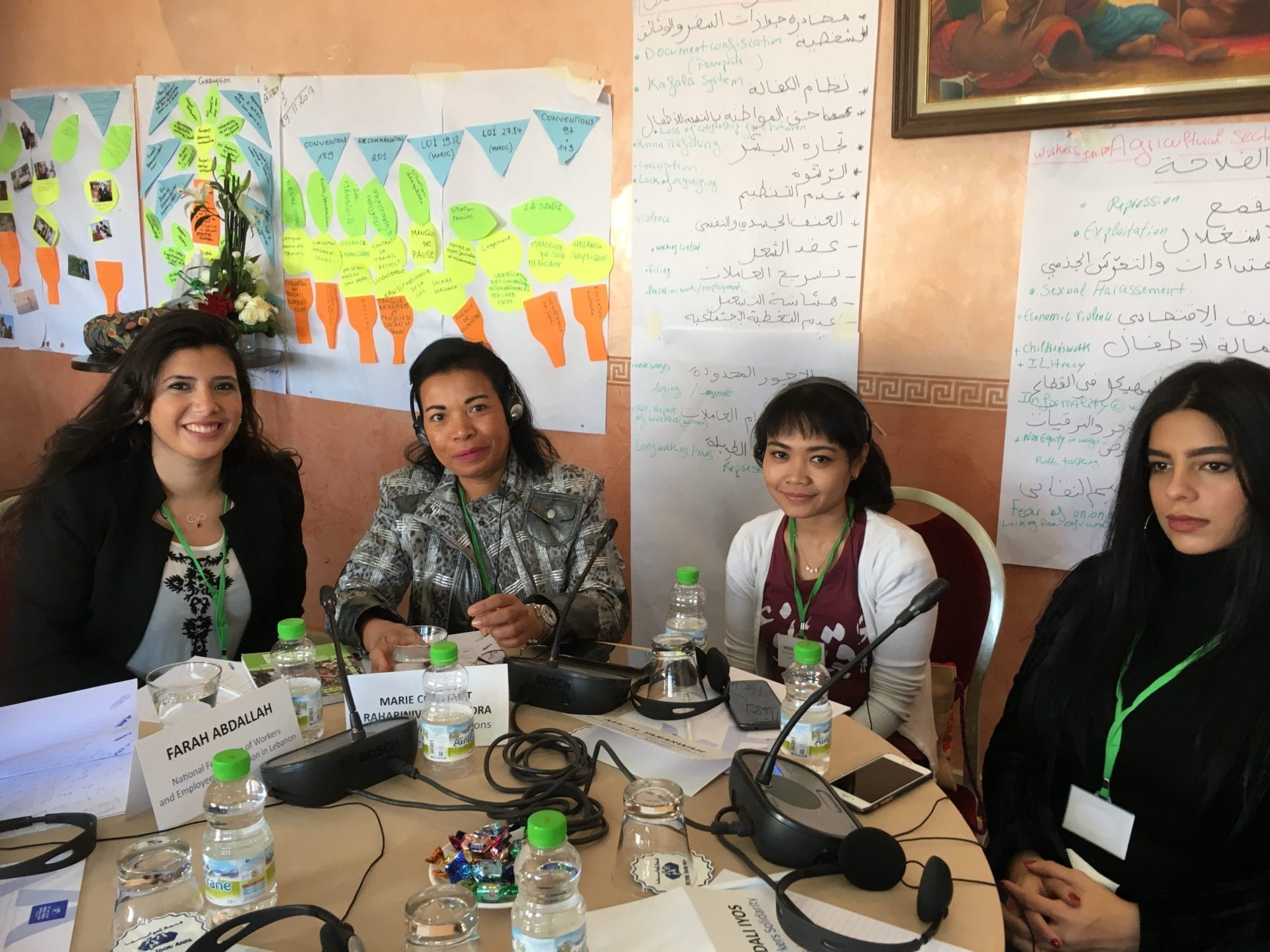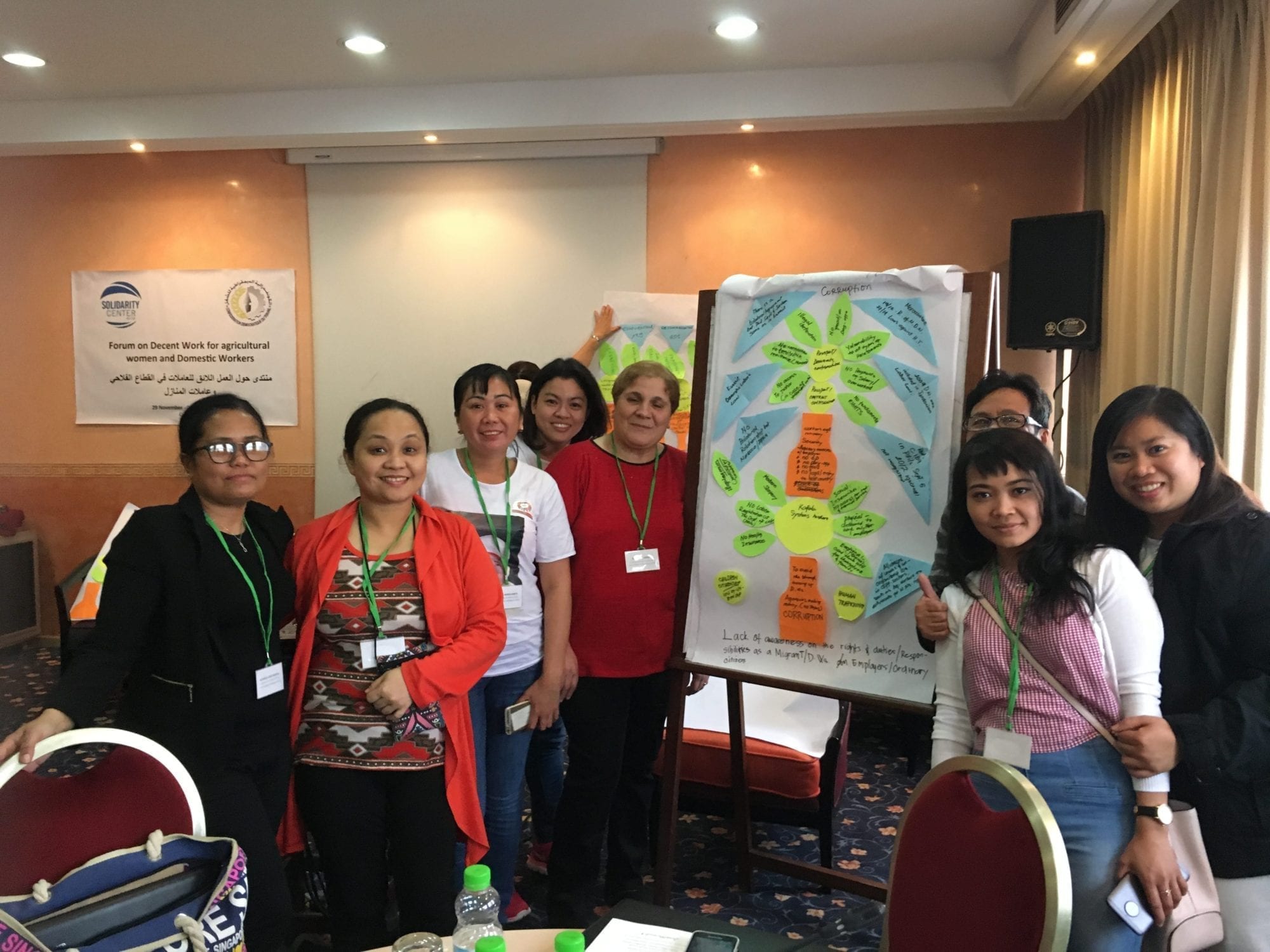Protecting the rights of migrant workers must be an essential component of the United Nations Global Compact on Safe, Regular and Orderly Migration, according to union leaders who met recently in Puerto Vallarta, Mexico, to craft a worker rights agenda for inclusion...
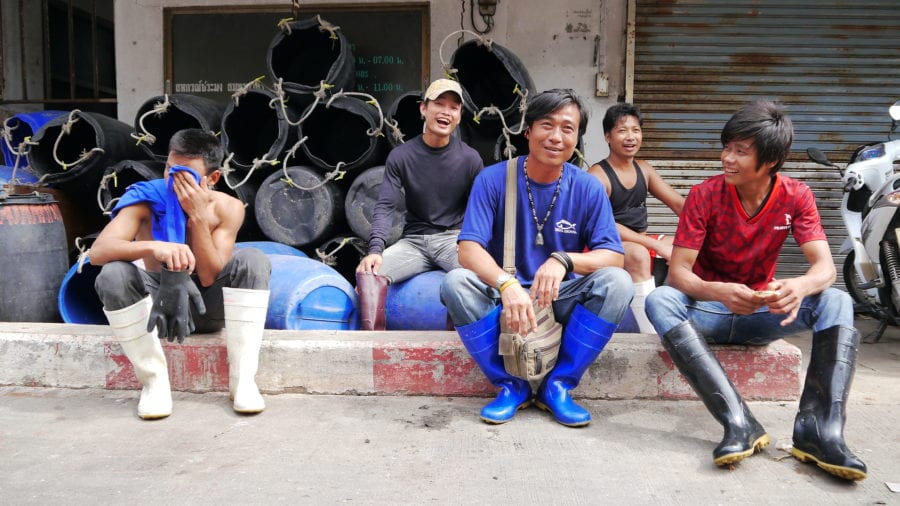
The Solidarity Center strives for rights for people on the move by ensuring migrant workers are fully able to exercise their workplace, social, economic and democratic rights. Solidarity Center/Jeanne Hallacy
Labor migration feeds the global economy. Hundreds of millions of migrant workers worldwide generate billions of dollars in global remittances. They are domestic workers, construction and agricultural workers, factory and service workers, teachers and professionals. Migrant workers often travel long distances due to a lack of decent work at home to support their families and build a better life. They frequently are denied the most basic human rights. For instance, most destination countries deny migrant workers the right to form unions, and explicitly exclude them from labor law protections, and women migrant workers are often subject to gender-based violence and harassment in their workplaces.
The Solidarity Center strives for worker rights for people on the move by ensuring migrant worker rights are a key part of the labor movement. We cultivate an understanding of how exploitative labor migration management schemes are a widespread means by which to undercut worker wages, create precarious work and pit workers against each other. And, in addressing these structural ills, we emphasize a response that understands the intersectionalities and identities that make migrant workers especially vulnerable. Our goal is to ensure that migrant workers are fully able to exercise their workplace rights, as well as their social, economic and democratic rights.
We also focus on the creation of decent work in home countries so workers can migrate by choice and not due to economic coercion. We recognize that migration is not caused by a single factor that “pushes” workers to migrate. In doing so, we bring our unique worker rights voice more broadly by emphasizing that everyone deserves dignity at work regardless of status—climate migrants, economic migrants and conflict refugees. We work to achieve this through programs that focus on union organizing and collective bargaining, policy advocacy, access to justice, safe migration and, more broadly, the ability to exercise fundamental freedoms as democratic participants.
Find out more
- A Pandemic Reset for Migrant Workers, Neha Misra and Shannon Lederer
- How COVID-19 Affects Women in Migration, Carolina Gottardo and Paola Cyment
Freedoms on the Move, a 2019 report by Solidarity Center and CIVICUS, is an urgent call to action for unions and other civil society groups to include migrant workers and refugees in advancing civic rights.
Decent Work Forum: ‘With a Union, We May Fight Together’
Ending human trafficking. Ensuring all employers treat workers fairly. Giving voice to migrant workers around the world. Creating a world in which women are treated equally to men. These are some of the broad goals participants at the Solidarity Center Forum on Decent...
Decent Work Forum: Sharing Strategies for Success
Following heartfelt rounds of songs on workers’ struggles and union solidarity, some 30 worker rights advocates launched the second day of the Forum on Decent Work for Agricultural Women and Domestic Workers. Discussions centered on the lack of migrant worker rights...
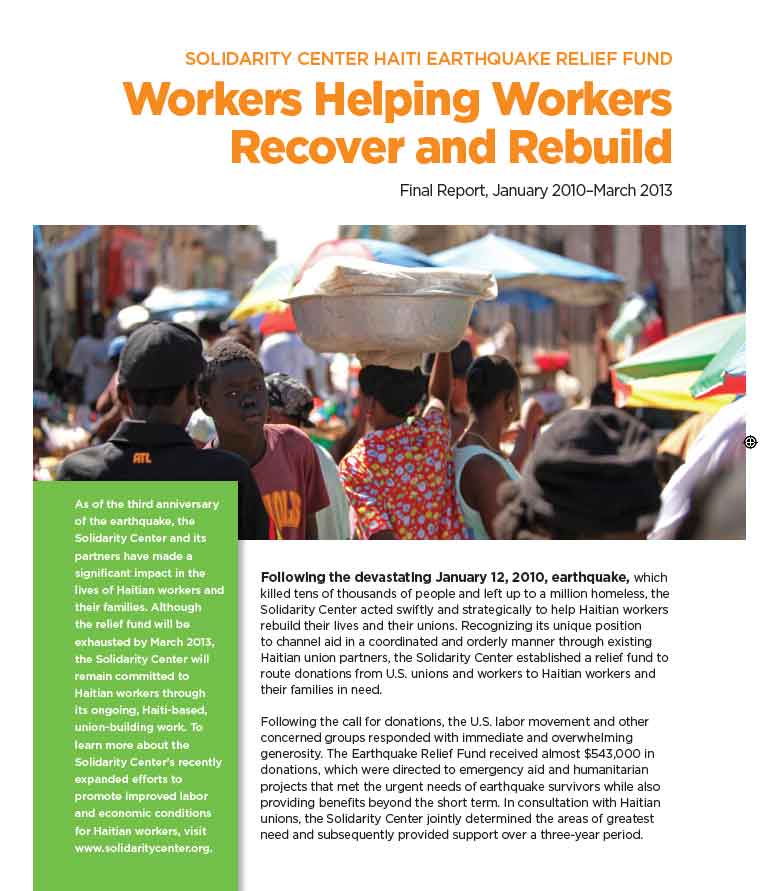
Solidarity Center Haiti Earthquake Relief Fund: Workers Helping Workers Recover and Rebuild. Final Report, January 2010-March 2013
Following the devastating January 12, 2010, earthquake in Haiti, the Solidarity Center established a relief fund to route donations from U.S. unions and workers to Haitian workers and their families in need. The final report on these efforts, released on the third...
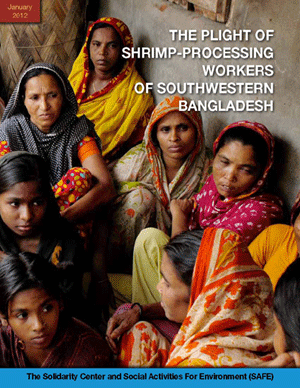
The Plight of Shrimp-Processing Workers of Southwestern Bangladesh (2012)
Bangladesh’s labor code addresses pay, working hours, and on-the-job conditions. However, in the shrimp-processing industry, the code is not being adequately enforced. Bangladeshi shrimp-processing workers—the majority of whom are women—still face inadequate health...
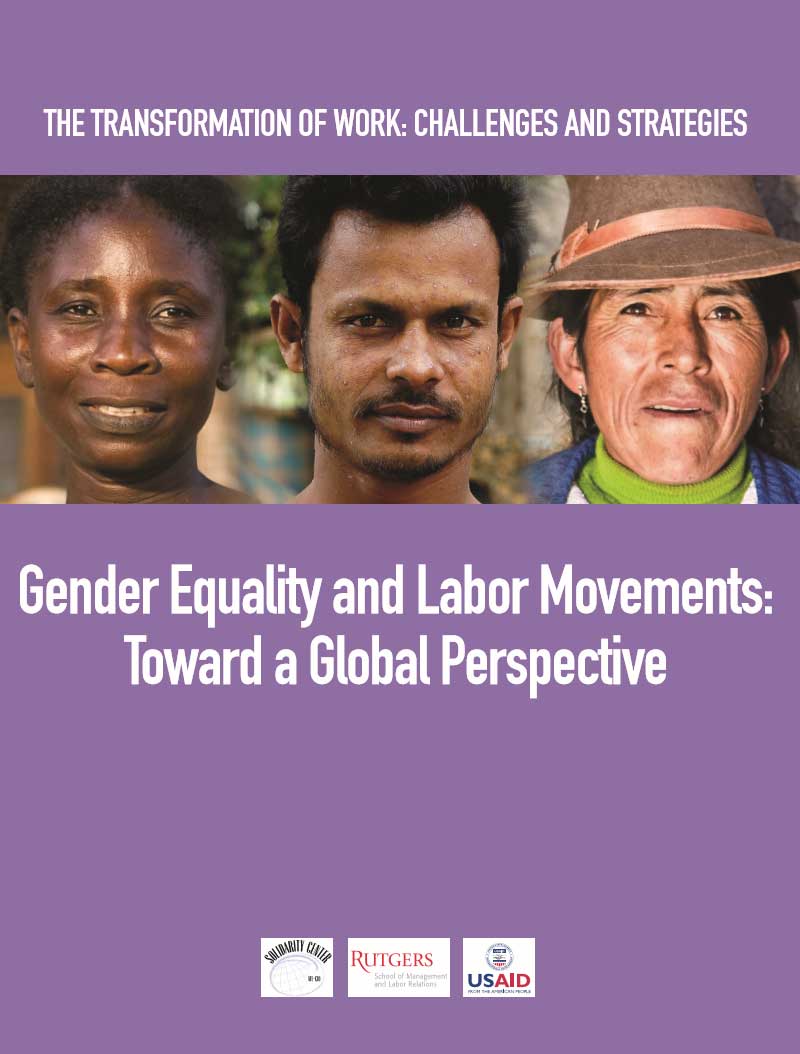
Gender Equality and Labor Movements: Toward a Global Perspective (Rutgers, 2012)
A critical review of the English-language research on gender equality and labor movements highlighting “best practice” case studies around the world most relevant to those engaged in building democratic and humane societies. This Solidarity Center report is part of a...
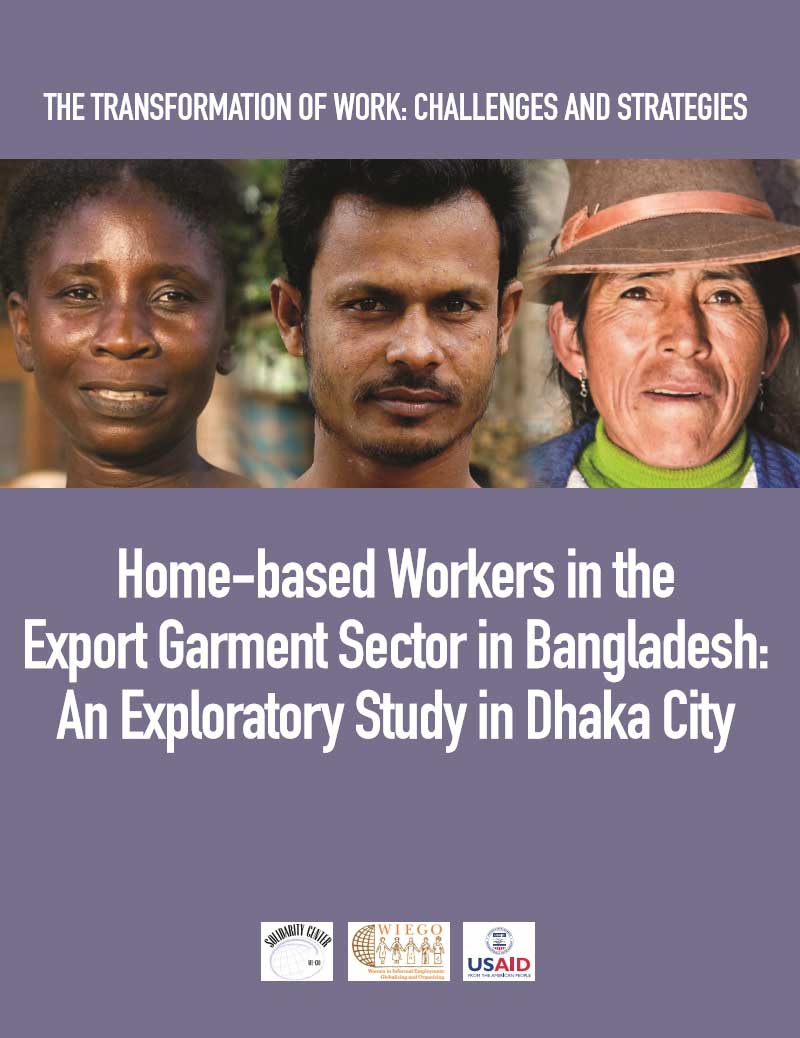
Home-based Workers in the Export Garment Sector in Bangladesh: An Exploratory Study in Dhaka City (Wiego, 2012)
Workers in the home-based export garment sector remain an invisible segment of the labor market, and this report is first step toward a systematic documentation of this phenomenon, with special emphasis on employment conditions, worker livelihoods and issues affecting...
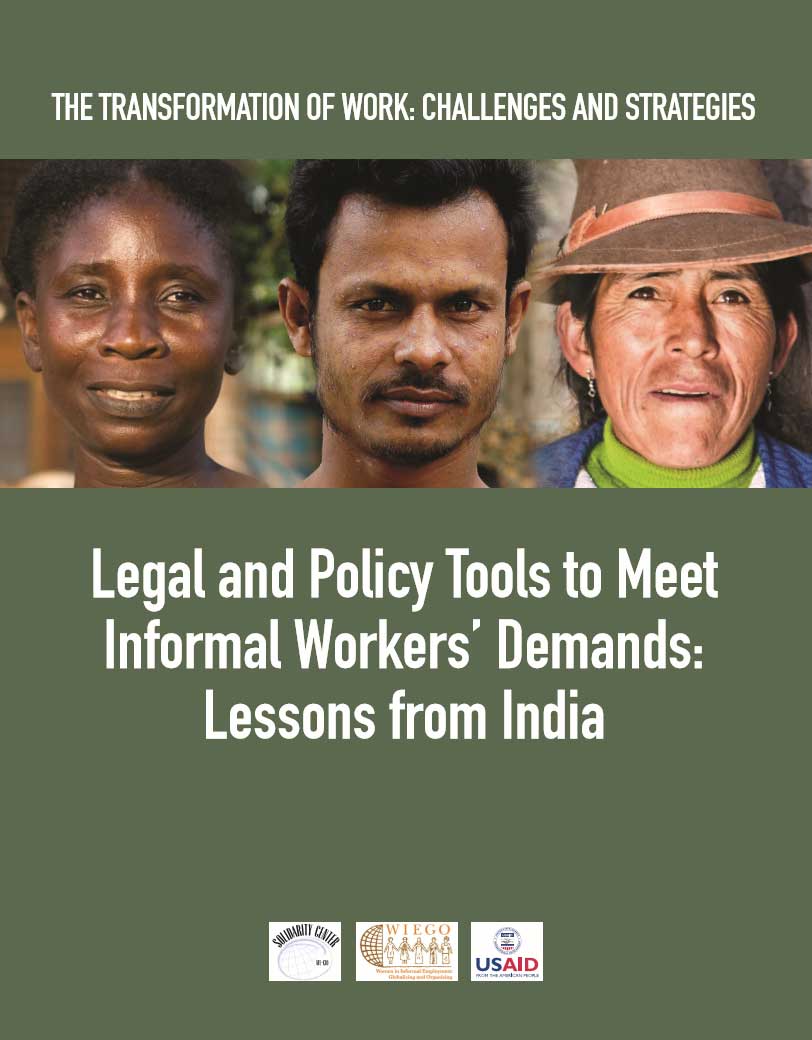
Legal and Policy Tools to Meet Informal Workers’ Demands: Lessons from India (WIEGO, 2012)
This report highlights key lessons from a WIEGO pilot project in India examining the nature of the informal economy and the way legal and policy tools can address the concerns of those working in the informal economy. This Solidarity Center report is part of a...
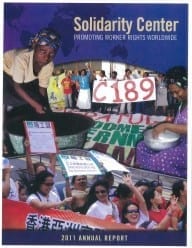
Solidarity Center 2011 Annual Report
Download here.

